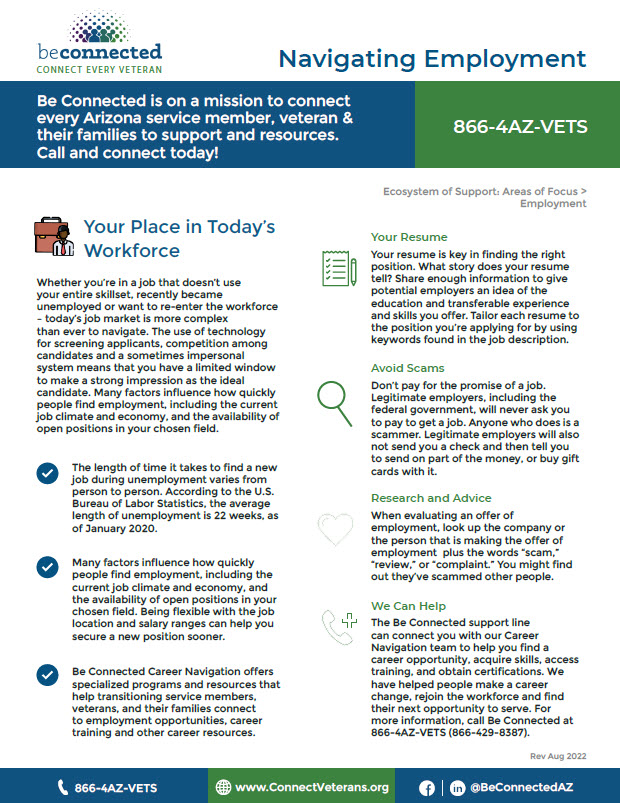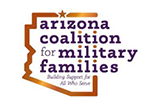Employment FAQs
To find a job when unemployed, focus your job search on relevant opportunities. Search and apply to job boards and LinkedIn for positions, and consider only the jobs that fit your qualifications and pay requirements. Network with other job seekers, hiring managers, and recruiters to help you find the right job for you.
According to the Federal Trade Commission, scammers advertise jobs the same way legitimate employers do: online job sites, social media, in newspapers, and sometimes on TV and radio. They promise you a job, but what they want are your money and your personal information. Here are some examples of jobs scams and tips to help you avoid them:
- Work from home job scams: Be careful with many work from home jobs where you are asked to work reshipping or reselling the merchandise. These ‘jobs’ are part of a scam system where you pay for the products upfront, and they either never arrive or arrive full of junk. In addition, if you gave your personal information thinking it was for payroll, you might now have an identity theft problem, as much of the contact information is false.
- Nanny, caregiver, and virtual personal assistant job scams. Scammers post fake job ads for nannies, caregivers, and virtual assistants on job sites. When you apply for the job, you too hand over your personal information. Make sure you investigate any company before you apply and turn over your personal information.
- Mystery shopper scams. While some mystery shopping jobs are legitimate, many are scams. Legitimate mystery shopping companies won’t ask you to pay for certifications, directories of jobs or job guarantees. If someone asks you to pay to get a job, that’s a scam.
- Job placement service scams. While many staffing agencies, temporary agencies, headhunters, and other placement firms are legitimate, others lie about what they will do for you, promoting outdated or fake job openings, and charge fees for so-called services. Legitimate placement firms do not typically charge a fee.
- How to Avoid a Job Scam: Before you accept a job offer, and certainly before you pay for one, take these steps to protect yourself from job scams:
- Do an online search. Look up the name of the company or the person who’s hiring you, plus the words “scam,” “review,” or “complaint.” You might find out they’ve scammed other people.
- Talk to someone you trust. Describe the offer to them and seek their opinion. This also helps give you vital time to think about the offer.
- Don’t pay for the promise of a job. Legitimate employers, including the federal government, will never ask you to pay to get a job. Anyone who does is a scammer.
- Never bank on a “cleared” check. No legitimate potential employer will ever send you a check and then tell you to send on the part of the money or buy gift cards with it. That’s a fake check scam.
Losing a job triggers feelings of worry and inadequacy. It can cause a myriad of mental health problems, from feeling irritable, sad, anxious, to more serious issues like depression, thoughts of suicide and addiction issues. Fortunately, there are steps you can take to improve your mental health despite the ongoing uncertainty of the situation. Stay physically active, sleep, eat well, and drink plenty of water. Talk to a trusted friend, family member, spiritual adviser or mentor, and schedule a time to worry, so you are not worrying all day about this situation. If you’re experiencing a decline in mental health that has you concerned, or your strategies aren’t working to improve your mood, then seek support. There are support lines that can listen and/or provide resources to counseling, support groups, education, and the development of coping skills.
Your resume will be key in finding a new job. Note actual experiences to give a potential employee an idea of what education, experience and skills you bring to the table. If there are periods of unemployment, you will need to explain these. Still, you can also use the unemployment period to take personal development courses, volunteer, or get hired for temporary projects. It is also important to create a cover letter and have references on hand when job searching.
The length of time it takes to find a new job during unemployment varies from person to person. However, according to the U.S. Bureau of Labor Statistics, the average length of unemployment is 22 weeks, as of January 2020. Many factors influence how quickly people find employment, including the current job climate and economy and the availability of open positions in your chosen field. Being flexible with the job location and salary ranges can help you secure a new position sooner.






